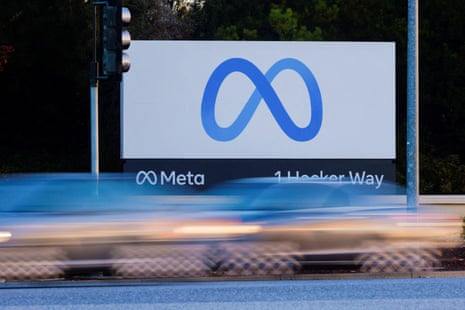Unlocking LLM Power: Jaromir Dzialo of Exfluency Shares How Companies Can Thrive
Artificial Intelligence, Face Recognition, and the Future of Multilingual Communication
Exfluency is a technology company specializing in hybrid intelligence solutions aimed at enhancing multilingual communication. By leveraging AI and blockchain technology, Exfluency provides progressive companies with advanced language tools. Their mission is to elevate linguistic assets to the same level of importance as other corporate resources.
In the realm of multilingual communication, trends are rapidly evolving, with AI—especially tools like ChatGPT—taking center stage. Companies within this sector are either feeling overwhelmed or racing to keep up with technological advancements. The primary hurdle is the significant technology gap present in this field, where innovation, particularly in AI, isn’t as simple as a one-step implementation.
The Benefits of Large Language Models (LLMs)
Off-the-shelf large language models such as ChatGPT and Bard offer immediate appeal due to their ability to provide seemingly magical, well-formed answers. However, the true advantages of LLMs are realized by those who can supply unalterable data to train these models. The quality of input is essential for their effectiveness.
How LLMs Learn Language
LLMs learn language primarily by analyzing extensive text data and understanding the underlying patterns and relationships. They utilize statistical methods to create contextually relevant responses. Here are the key components crucial for their learning:
- Data: Trained on massive datasets obtained from the internet, including books, articles, and websites, LLMs learn a diverse array of language patterns and topics.
- Patterns and Relationships: By identifying how words, phrases, and sentences co-occur, LLMs grasp grammatical and semantic connections.
- Statistical Learning: They evaluate the probabilities of word sequences, which aids in generating coherent language.
- Contextual Information: LLMs take into account full contextual elements, enhancing their ability to disambiguate words and produce accurate responses.
- Attention Mechanisms: Techniques that let models weigh the importance of various words based on context further fine-tune their responses.
- Transfer Learning: Pretraining on extensive datasets allows models to adapt effectively for specific tasks such as translation or summarization.
- Encoder-Decoder Architecture: This structure helps in tasks like translation by processing the input text into a comprehensive representation before generating output.
- Feedback Loop: LLMs can improve over time through user interactions, enabling them to adjust based on feedback received.
Challenges of Employing LLMs
A significant challenge that has persisted since data sharing with major platforms like Google and Facebook is the realization that users are essentially the product. Major companies are profiting immensely from the data we provide to enhance their applications. The explosive growth of platforms like ChatGPT highlights the extensive data influx these systems benefit from.
Large Language Models (LLMs) have gained immense insights from the myriad of prompts submitted by users. These open LLMs can generate misleading information; their responses are often so polished that users may fall prey to inaccuracies. Compounding this issue is the absence of references or source links, leaving users unsure about the origin of the information provided. So, how can these obstacles be addressed?
The effectiveness of LLMs largely depends on the quality of data fed into them. By leveraging blockchain technology, we can establish an immutable audit trail, ensuring the data remains unaltered and reliable. This eliminates the need to scour the internet for information. Such an approach grants us total control over the input data, maintaining confidentiality while providing an array of useful metadata. Additionally, this system can support multiple languages.
Furthermore, since this data resides in our databases, we can include essential source links. If there’s any doubt regarding the response generated by an LLM, users can directly access the source data to verify the authorship, timestamp, language, and contextual details.
For organizations seeking to utilize private, anonymized LLMs for multilingual communication, it is crucial to ensure that the data is immutable, multilingual, high-quality, and exclusively accessible to authorized personnel. When these conditions are met, LLMs can truly become transformative.
The future of multilingual communication seems promising. Just like in various fields, language will increasingly integrate elements of hybrid intelligence. For instance, within the Exfluency ecosystem, an AI-driven workflow manages 90% of the translation process, allowing our skilled bilingual subject matter experts to concentrate on perfecting the final 10%. Over time, AI will assume a more significant workload, though the role of human oversight will remain indispensable. This synergy is captured in our motto: “Powered by technology, perfected by people.”
As for our plans at Exfluency for the upcoming year, we are brimming with ideas! Our goal is to extend our technology to new sectors and cultivate communities of subject matter experts to better serve those industries. There’s also considerable interest in our Knowledge Mining app, designed to unearth valuable information hidden within vast linguistic assets. The year 2024 promises to be thrilling!
AI has increasingly made its mark on the cryptocurrency sector, revolutionizing various dimensions of the industry. Its impact spans from enhancing security and transaction efficiency to creating sophisticated trading algorithms. As artificial intelligence develops, the interplay between AI and digital currencies continues to evolve, fostering innovation and improved user experiences.
OpenAI’s Sam Altman has declared that we are entering a new era of superintelligence, emphasizing the transformative potential of AI technologies. With advancements in AI reasoning models, such as those introduced by Mistral AI, large tech firms now face significant competition. These developments highlight the necessity for traditional players to adapt or risk being overshadowed by emerging tech.
The concept of the AI blockchain is gaining traction, aimed at harnessing AI capabilities to enhance decentralized systems. This integration promises to deliver better scalability, transparency, and security, showcasing a future where AI and blockchain technology coalesce to redefine digital interactions.
Current Trends and Insights
Machine learning plays a pivotal role in boosting security for cloud-native environments, enabling organizations to better safeguard their assets. In finance and logistics, innovative applications of machine learning are transforming business processes, streamlining operations, and enhancing decision-making. Moreover, there are allegations concerning the use of AI and automated systems to artificially inflate music streaming numbers, raising concerns about the integrity of digital content platforms.
Future Perspectives
The partnership between AI and various sectors will continue to grow. As companies increasingly collaborate with outsourced developers, they stand to gain from the advantages of utilizing expert resources, leading to enriched technological advancements and competitive edges in their respective markets.
This rapidly evolving landscape illustrates the necessity for ongoing adaptation and investment in AI technologies, propelling innovation across industries.
Industries
- Entertainment
- Not for Profit
- Real Estate & Construction
- Retail
- Software & Cloud Services
- Technology
- Telecommunications
- Transportation, Shipping & Logistics
- Travel & Hospitality
- Wholesale
- Other







